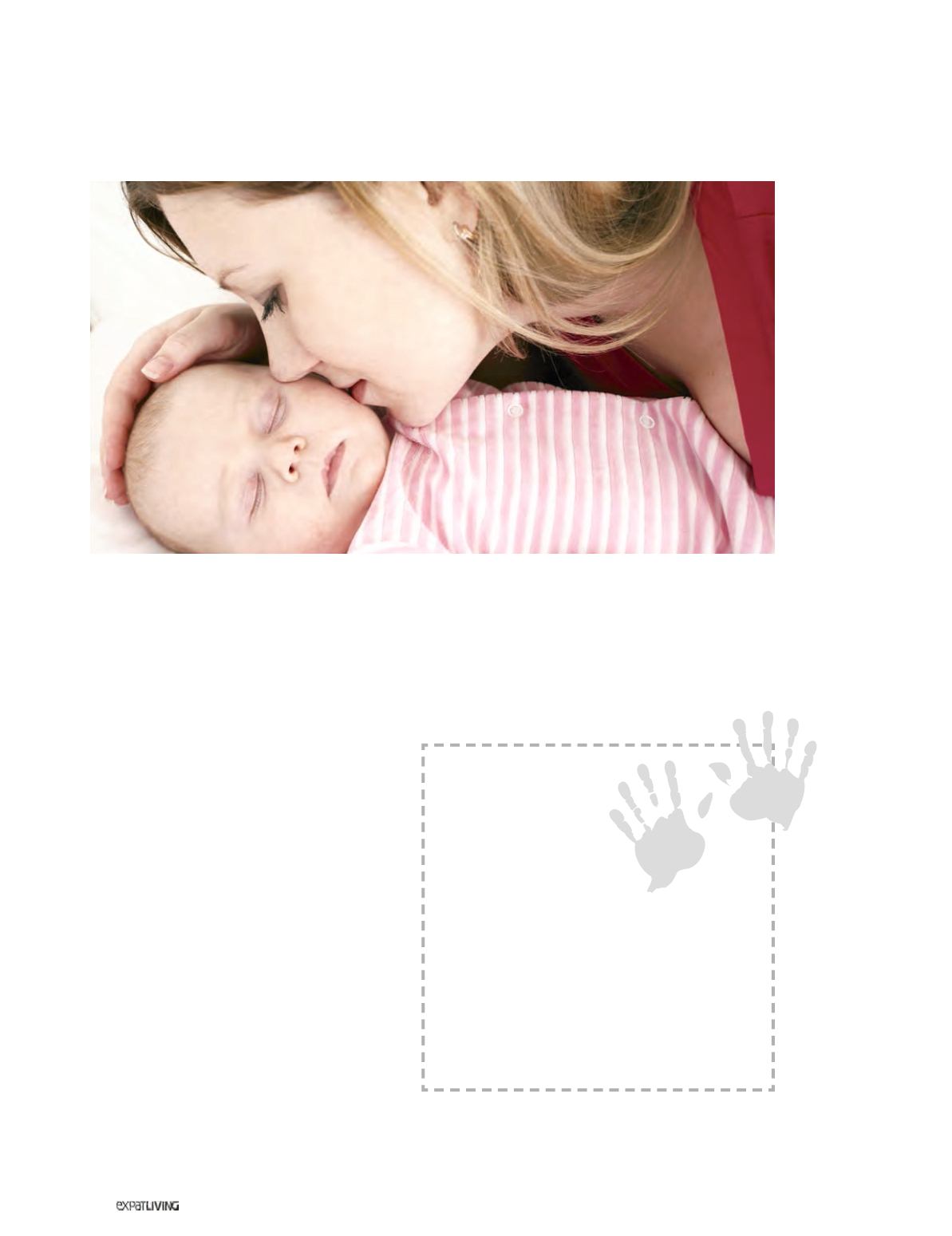

HEALTH&FITNESS
258
June15
The Counselling Place
#04-323 The Plaza, 7500A Beach Road
6887 3695 |
thecounsellingplace.comBABY BLUES
• Around 10 to 20 percent of newmothers experience
postpartum depression, but as many as 80 percent
suffer from “baby blues”.
• The blues are caused by hormonal upheaval
related to pregnancy and birth.
• Options for treating postpartum depression include
medication prescribed by a psychiatrist, counselling
from a professional psychologist or therapist, and
hormone therapy from a doctor or specialist.
• Sleep is key, says Dr Ho. Her first step in treating
postnatal depression is to send her client for a
24-hour sleep break away from the baby and the
family, and then to set up a structure for sleeping
and night-feeding.
travelling spouse. As a result, the spouse at home
might resent the disruption caused when the traveller
comes home; he, then, feels left out and isolated, as
if his only function was to be a bank.
Add to this the additional stress of a newborn baby
– difficult enough with two fully co-parenting parents!
– and there’s every potential for disaster.
This couple are clearly having issues with intimacy
and trust. Many couples fall into the roles of mum
and dad, forgetting that they are a couple first. Some
women struggle with self-esteem and body image
issues after giving birth, and this is further exacerbated
when their husband seems not to be attracted to them
and the couple are not having sex.
They’re both struggling with exhaustion and lack of
sleep. There also seem to be not enough time in the
day for everything they need to do. Malcolm misses
Susie’s attention and feels he’s being blamed for his
lack of support. Family life is no longer pleasant and
enjoyable; he doesn’t look forward to coming home.
Though they feel stressed by finances and
responsibilities, men like Malcolm are unwilling to ask
for help; instead, they may blame their wives. Often, the
outside world seems to offer a lot more fun, excitement
and women who appreciate them. If the tendency for
infidelity is there, this could be a trigger point.
What sort of counselling is needed here?
For Susie, we would recommend individual counselling
for her postnatal depression. We also need to build
up her self-esteem, not only as a mother but in her
own right. We would support her in being a more
effective parent.
Malcolm needs individual counselling for stress and
achieving a better work-life balance, and possibly also for
depression, which is common for the partner of a mother
suffering from that condition. We help him to understand
postnatal depression as an illness, and the support he needs
to be giving.
We’d also recommend couple counselling for any issues of
infidelity, intimacy, co-parenting and communication.



















